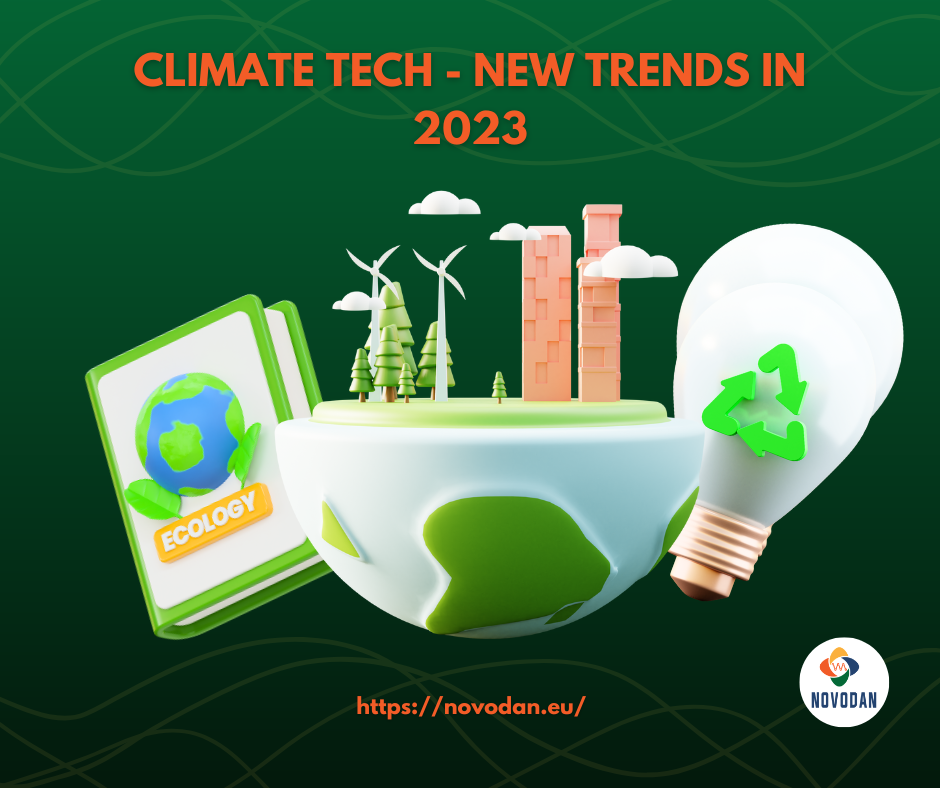In the year 2023, the field of climate tech has witnessed the emergence of several groundbreaking trends that are shaping a more sustainable and resilient future. These transformative developments are steering us closer to a world where our actions are aligned with the needs of the planet. Let’s take a closer look at a few of these notable trends:
1. Carbon Removal Technologies: The urgency to combat greenhouse gas emissions has led to a heightened focus on carbon removal technologies. These innovative solutions aim to extract carbon dioxide from the atmosphere, employing methods like direct air capture and enhancing natural carbon sinks through reforestation and ocean-based strategies.
2. Circular Economy Solutions: The concept of a circular economy has captured widespread attention as a viable pathway to sustainable resource management. Businesses are actively exploring creative solutions to reduce waste, foster recycling and repurposing practices, and design products with longevity and recyclability in mind.
3. Decentralized Energy Systems: Embracing the shift towards decentralized energy systems, local renewable energy generation has gained momentum. Initiatives like rooftop solar panels and community-owned wind farms empower regions to achieve energy independence, thereby reducing reliance on centralized fossil fuel-based power grids.
4. Electrification of Transportation: A swift transition towards electrifying transportation has become evident in 2023. Governments and corporations are making substantial investments in electric vehicle (EV) infrastructure, including charging stations and advancements in battery technology. This transition holds the promise of mitigating carbon emissions and diminishing our dependence on fossil fuels.
5. Sustainable Agriculture and Food Systems: The agricultural sector is undergoing a profound transformation towards sustainability. Practices like precision agriculture, vertical farming, and regenerative techniques are gaining traction, while alternative protein sources such as plant-based and cell-based meats are entering the mainstream, minimizing the environmental impact of traditional livestock farming.
6. Data Analytics and AI: In the realm of climate tech, data analytics and artificial intelligence (AI) have become indispensable tools. These technologies optimize energy systems, predict and manage climate-related risks, and enable smarter decision-making for climate mitigation and adaptation strategies.
7. Green Finance and Investment: A significant trend in 2023 is the growing emphasis on green finance and investment. Sustainable investing, impact investing, and green bonds are gaining popularity as investors seek opportunities that align with environmental goals. Financial institutions are incorporating environmental, social, and governance (ESG) criteria into their investment strategies.
8. Climate Resilience and Adaptation: As the impacts of climate change intensify, there is an increased focus on climate resilience and adaptation. Technologies and solutions that bolster the ability of communities and infrastructure to withstand extreme weather events and rising sea levels are receiving heightened attention.
These trends represent the relentless efforts and commitment of individuals, organizations, and governments worldwide to address climate change through technological innovation, policy adjustments, and societal shifts towards more sustainable practices. Together, we are building a brighter and more sustainable future for generations to come.
